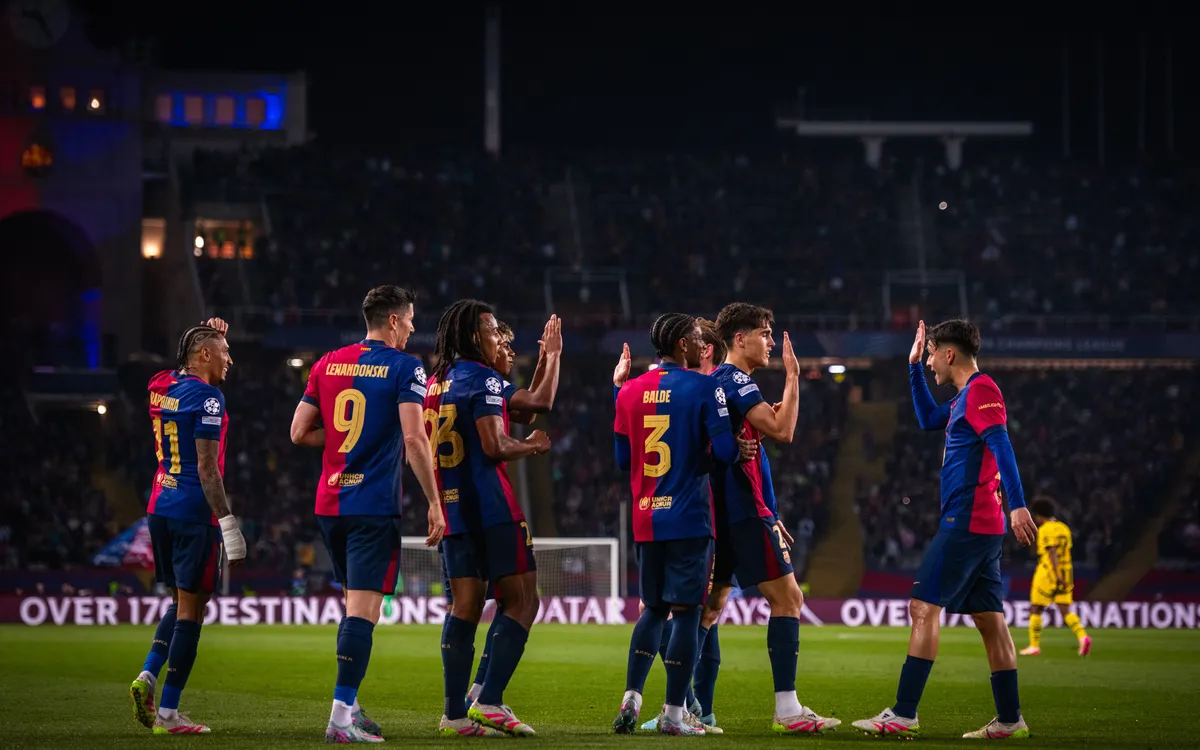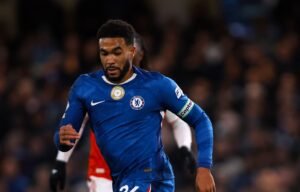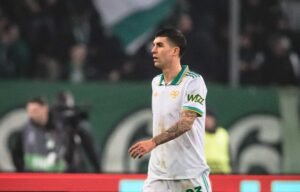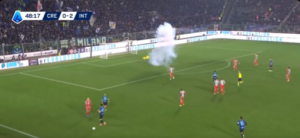Four years on from the departure of their Argentine miracle worker, Barcelona have a Spanish replacement, straight from La Masia
In 2015 with less than 15 minutes to play against Bayern Munich at the Camp Nou, Lionel Messi picked the ball up on the right just outside the penalty area, took one or two deft touches forward, and drilled a shot beyond Manuel Neuer into the near post. The grim deadlock was broken and Barcelona were one-nil up.
Five minutes later the Argentine was at it again, this time driving into the penalty area one on one with Jerome Boateng. He feinted and twisted, the German defender collapsing on his bottom, and then dinked the ball over the onrushing Manuel Neuer. Two-nil up and game over.
Barcelona would go on to win the treble that year, inspired by their Argentine miracle worker. There was a litany of other moments. The 6-2 win against Real Madrid at the Bernabeu in the year of his ascension to power was notable, with the home side scoring first and then being spectacularly put to the sword by a Messi deployed in a new role. There was that night in Rome when the 22-year-old rose and headed a ball he had no right to head. Barcelona also ended that season with a treble.
He was a player whose performances beautified football like those of few others, elevated his side like few others. It wasn’t Messi alone, to be sure. The 2009 final had Andres Iniesta’s manoeuvre and Samuel Eto’o’s daring run. In 2015, the MSN were the most formidable attacking trio in Europe, scoring a combined 122 goals between them. But time and again it was the Argentine, with footballing genius unmatched, who delivered the key moments and formed the focal point of the aura of fear that accompanied the Catalan club.
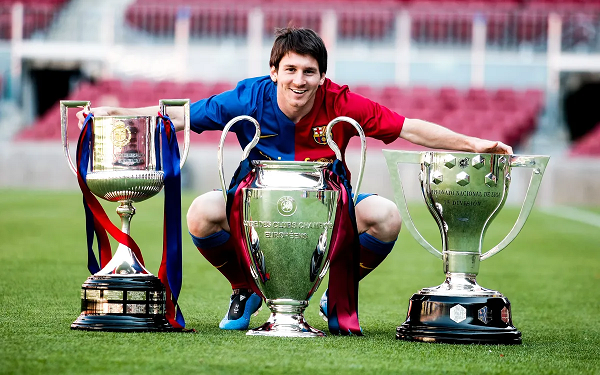
Switch forward to 2021 and Barcelona had become a shadow of their name, reeling and mocked by rivals. Messi left with club president Joan Laporta struggling to explain to passionate culers why they could no longer keep the Argentine. Barcelona had been desperate not to lose him but calamitous mismanagement of funds had pushed the club into an abyss.
Laporta said the administration before him – that of Josep Maria Bartomeu, 2014-2020 – had spent “too much and at the speed of light”. The transfers of just Philippe Coutinho, Ousmane Dembele and Antoine Griezmann had cost over €400 million. Annual wages had far exceeded annual revenue, with player salaries 103% of all income. The club lavished close to €1 billion in five years with nothing credible to show for it, before the pandemic hit and worsened matters. If not bankruptcy then a close cousin reared its ugly head. Players had to agree to salary reductions and deferment. Big names had to go.
Perhaps most symbolic of the club’s poignant decline on the pitch were the two Europa League campaigns after Barcelona dropped out of the Champions League twice, in the 2021-22 and 2022-23 seasons. The last time the club had played in the Champions League’s oft-overlooked younger brother was in the 2003-04 season, the campaign before Messi’s debut. It feels like a statement of the influence he’d had at the club that they went back to the lower European competition immediately after his exit.
Barcelona pulled several economic levers after that to keep themselves above water. They sold La Liga television rights. American company Sixth Street secured up to 25 per cent of the club’s media rights for 25 years. A partnership with Spotify brought in just over a quarter of €1 billion.
The funds were spent on the signings of players like Robert Lewandowski and Raphinha. The unconvincing Koeman was replaced by club legend Xavi. He wasn’t a raging success himself, with a particularly dismal first few months and ultimately a joyless end, but he oversaw a decent 2022-23 campaign that led to a 27th La Liga title and their first in four years.
Alejandro Balde came in at left-back, replacing the aged Jordi Alba. Jules Kounde settled down at the other flank. An inspired block midfield shape made Barcelona more difficult to play against, although it stifled the creativity and flair that is the club’s identity.
In fact, Barcelona’s title win under Xavi was largely due to a superb defensive effort that saw them let in just 20 league goals all season, only two shy of the La Liga record for least goals conceded. There were 26 games in which the Catalans didn’t concede a goal, in itself a joint-record. But attacking-wise the team struggled, with a lot of 1-0 wins. Eleven games in all ended with a 1-0 scoreline.
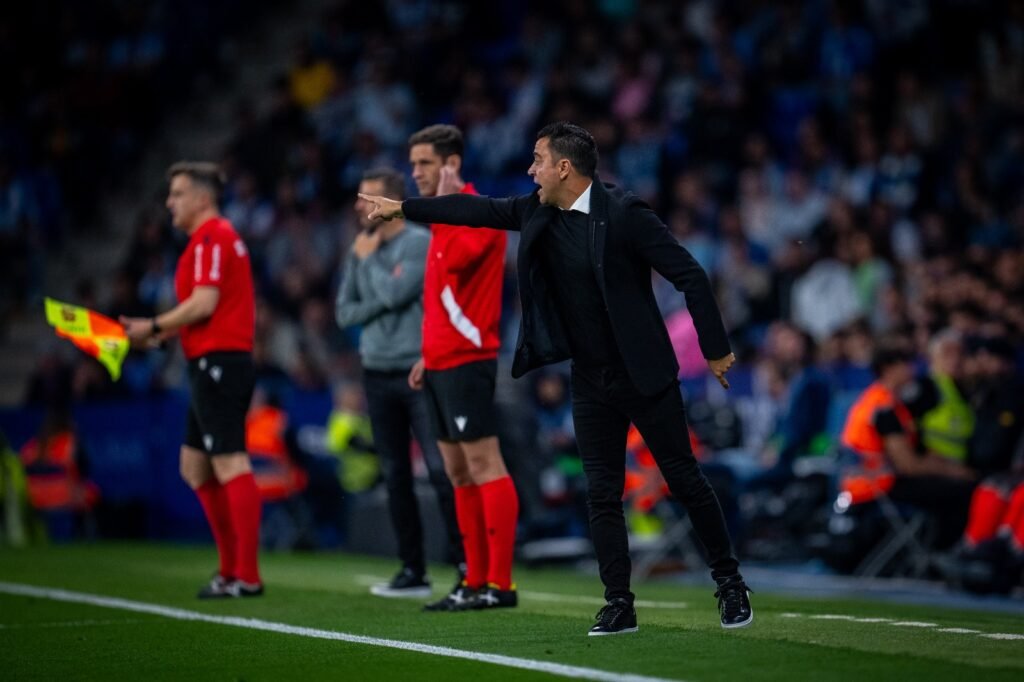
The following season, Xavi’s inability to present a much more pleasing style was no longer the major problem, with form and results dropping drastically. It ultimately led to his sacking at the end of the 2023-24 season. The entire episode itself was comical, like some incomplete version of a Solomon Grundy rhyme readapted for Xavi and containing the months of the year not days of the week: an extended contract for the club icon in September, resignation in January, convinced to return in April, and then sacked in May.
Hansi Flick, the German who had won the treble with Bayern and been courted by Barcelona for months was brought in to replace Xavi, his predecessor telling him to expect to “suffer” on the job. Barcelona’s surroundings, the atmosphere around the club, the politics, the negative scrutiny – those were the key things Xavi complained about, the reasons for his earlier resignation, the pressure he struggled to cope with as he called the Barcelona manager’s job “cruel and unpleasant”. Those pressures are still there but Flick hasn’t complained.
Indeed, besides his risky, high-press system, that has been a defining characteristic of the German, and endearing to club bosses. One of the things Laporta had been upset about was Xavi’s public appraisal of Barcelona’s finances: why they couldn’t sign the players they needed, why they couldn’t compete with Real Madrid. That hasn’t changed. The club are still struggling with finances, with La Liga suspending the licenses of Dani Olmo and Pau Victor in January, but rather than stab at issues beyond his control Flick has worked around them, even if that means starting three 17-year-olds in a La Liga game.
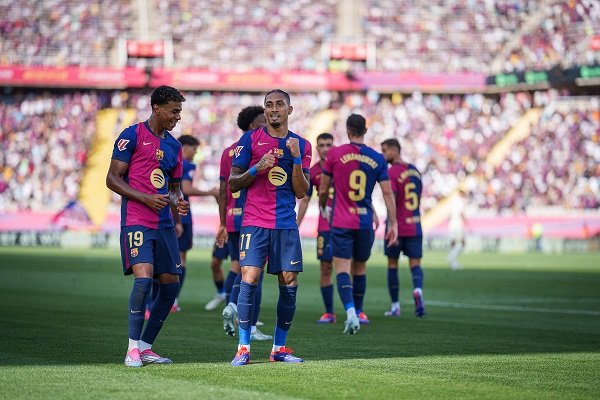
On the pitch the young Barcelona squad – sprinkled with some experienced older players – have now exhibited a sense of fearlessness instilled in them by a German who lives and breathes attacking play. Off the pitch there is a togetherness, a sense of culture; and Flick has shielded players when necessary from what could be vitriolic criticism. In response, players like Raphinha have been reborn. The trio of Frenkie De Jong, Pedri and Gavi have continued to blossom, warts and injuries and all.
But the ultimate gem is the revelation of another miracle worker, this time a Spaniard but still made in La Masia. Across two legs in the Champions League semi-finals against Inter Milan the 17-year-old mesmerised the world. His effort in the 24th minute at Montjuic was telling. With Barcelona two-nil down in the opening 20 minutes, Yamal pulled one back with a goal he had no right to score, from space that wasn’t there. At the San Siro when there were 21 tired players on the pitch, there was one teenager peppering the veteran Italian defence, searching for something for his team.
Barcelona ultimately lost 7-6 but Yamal had shown the world a glimpse of a future that looks imminent. At Espanyol, Barcelona had one hand on the La Liga title, but with rivals Madrid having won the day before and their local rivals threatening to extend their wait for their 28th title, it was Yamal who put a stop to the meddling with a preposterous strike that is fast becoming a trademark.
“We didn’t have many clear chances,” said his teammate Raphinha after the game. “But we have a kid in there who sometimes pulls something out of the golden feet he has and he gave us peace of mind to stay in the game more calmly.”
That kid with the golden feet is turning 18 in July. As he gets older and better, it’s difficult to shake the sense that Barcelona are going full circle to a time when they can dominate Europe with a footballing genius at the head of their army.

